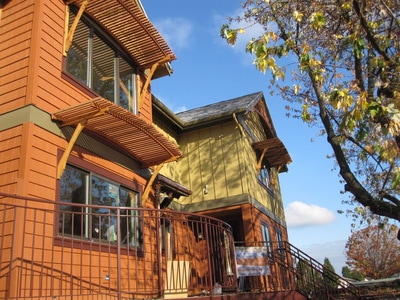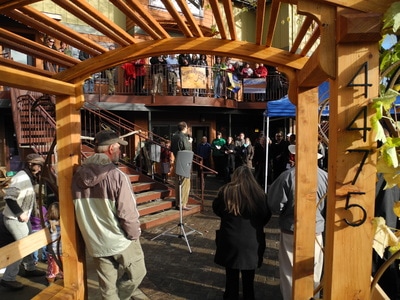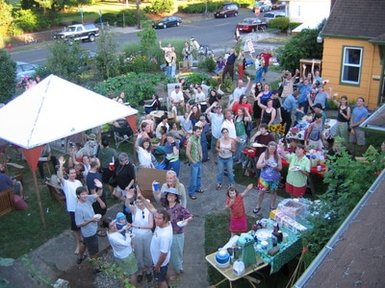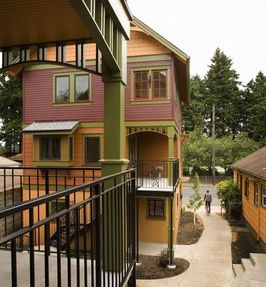Beginning in February of 2017 in the City of Portland, developers of multi-dwelling projects of 20 or more units will have two basic options:
1. Provide 20% of the units to residents that make no more than 80% of the region’s Median Family Income.
2. Provide 10% of the units to residents that make no more than 60% of the region’s Median Family Income.
- Developers may choose to pay an additional fee instead of selecting one of these options - Note: The Portland region’s Median Family Income for a family of 4 in 2016 is $73,300
The intent of inclusionary zoning is to allow more diverse neighborhoods to exist, to provide options for low income residents to live in all neighborhoods of a city, and to address the housing crisis by requiring affordable housing to be built along with market rate housing. Many low income families and individuals have benefited from this practice by being able to live in an area of their community that allows them to have access to good schools, transit, and business opportunities.
Portland City Council and many affordable housing advocates have applauded this development, but there are mixed reviews about the success of inclusionary zoning. Critics state that it increases the cost of construction, which will reduce the number of new housing units being built and thus increase the cost of housing. Also, while the affordable housing units in a given development are available at lower costs, the market rate units in the same development are likely to be more expensive to offset revenue losses of the lower rate units. Finally, the housing crisis in Portland is so extreme that the number of affordable housing units built through the inclusionary zoning process is likely to be far less than the demand for these types of units.
Despite these shortcomings, inclusionary zoning is a positive step in the fight against the housing crisis. Through its implementation, many will receive the housing assistance and opportunities they need to advance and make further contributions to our city. Neighborhoods and cities are stronger and more vital when they are inhabited by diverse people and families, which is encouraged by inclusionary zoning. Also, tax exemptions, systems development charge waivers, and other credits will help to subsidize revenue losses to developers. However, inclusionary zoning should not be seen as a complete solution to the housing crisis. Many additional strategies are critically important to provide an equitable and diverse housing market as Portland’s population is expected to increase by approximately 250,000 by 2040.
No-cause evictions often plague long-time residents as neighborhoods are gentrified and pressure builds for property owners to sell and redevelop buildings, so this law will provide much needed assistance. Property owners have also been known to increase rent by extremely high percentages, which often serves as a default eviction since it prices out many residents. Like inclusionary zoning, advocates admit that this law isn’t perfect. But, as pointed out by Commissioner Chloe Eudaly: “This is the only tool the City of Portland has to protect renters and we are using it.”
With many issues coming forward that affect the present and future of housing in Portland, we will keep you updated with the latest developments and insights.





 RSS Feed
RSS Feed

